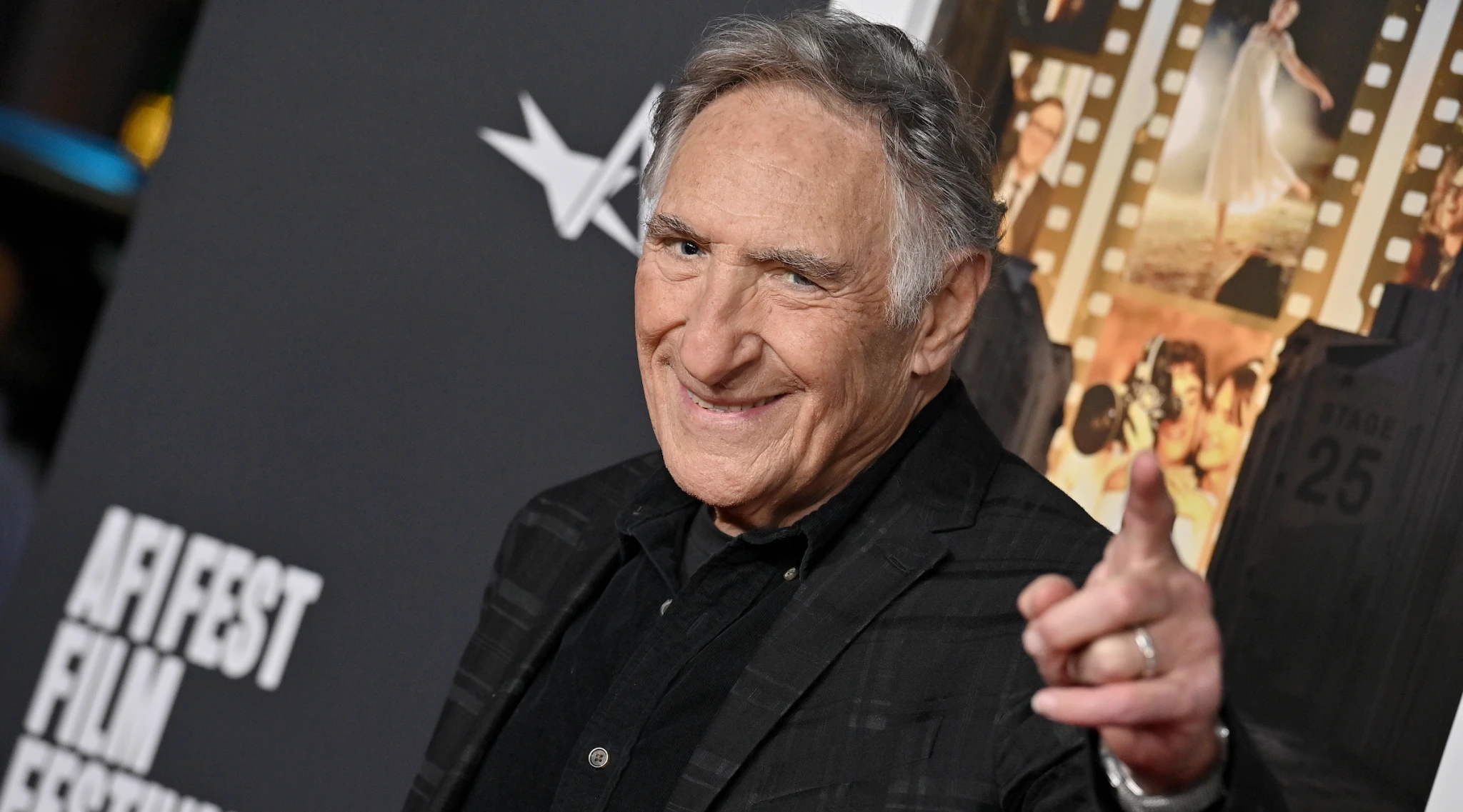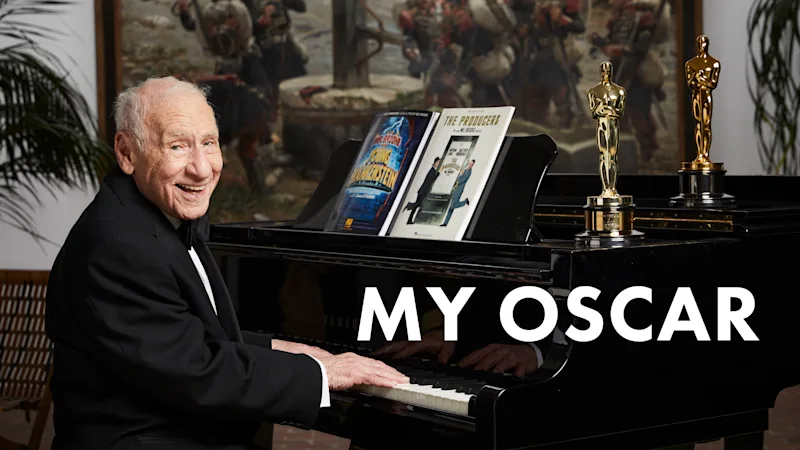Judd Hirsch's role in The Fabelmans was a tall order with a small amount of screen time. The new film from Steven Spielberg tells the story of how the director fell in love with filmmaking, and also how his parents' (played by Paul Dano and Michelle Williams) marriage fell apart. The latter has influenced a number of Spielberg's previous films — namely, E.T.: The Extra-Terrestrial and Close Encounters of the Third Kind — but The Fabelmans is the first time that the Oscar-winning filmmaker has directly confronted their divorce onscreen.
Hirsch has just three scenes in the film as Boris, the elderly uncle who pays an unannounced visit to his niece, Mitzi (Williams), and her family. During his visit, Boris makes a spectacle of himself at the dinner table, tells ridiculous stories from his days in the circus, and briefly offers Mitzi and her kids a lighthearted reprieve during a period of mourning. His most notable scene, however, involves a pivotal conversation with Sammy Fabelman (Gabriel LaBelle), Mitzi's teenage son and the movie's stand-in for Spielberg.
In a film full of larger-than-life characters, Boris is designed to be one of the biggest, which Hirsch was unaware of when he first sat down to read the script. As a matter of fact, all he knew about his role in the film was that it was based on someone who left a lasting impact on Spielberg. "All Steven said was, 'He's the guy that made me become a director,'" Hirsch tells A.frame.
"I kept thinking that the part was going to be a director or another guy in the movie business. I thought, 'Oh, I'll get to talk about films and whatnot,'" says the actor. "Of course, that turned out not to be the case." Instead, Hirsch ended up playing the character that he believes is the closest thing The Fabelmans has to its own E.T., who drops out of the sky one day and turns a young man's world completely upside down.
At the 95th Oscars, Hirsch is nominated for Best Supporting Actor. It marks his second nomination, more than 40 years after receiving his first for 1981's Ordinary People. Of the recognition, Hirsch said, "In truth, I am surprised, humbled and thankful to be deserving of such an honor. And Steven Spielberg….what can I say."

A.frame: What was Steven's initial pitch to you for this project? Did he tell you what the role was that he wanted you to play, or did he just send you the script?
Because we were dealing with COVID-19 at the time, he could only call me first, which I think he did with pretty much everybody. He called me to tell me that he had chosen me for a part in his new film. I don't even think he told me at the time that I'd be playing an uncle. Eventually, he sent me the script and I remember it was really intense trying to see the part the way he'd described it. I thought, "How did this guy make him do anything? What is Steven talking about? In what world could that be what happened? On what planet?"
Boris comes in, and it does feel like an alien has arrived. He comes in and says to Sammy, "You shall be." So, I started asking myself, "Who do I know like this?" The problem was that I don't know anybody like him. I don't know anybody who talks like he does. I just decided that, if this is a person who really existed in Steven's life, then I'll have to be the person who influences or affects Sammy in a very foreign way. The word "foreigner" came to me immediately, but Steven wasn't very specific about how I should sound in the film. I don't know why, either. I think he was just hoping to see what I might come up with.
He must have had a lot of trust in you.
I guess so. I don't know why. I mean, I don't even know what he'd seen me in before he called. He's never told me. It couldn't have been Taxi or anything like that. That wouldn't have done it. [Laughs]
It could have been Taxi!
That'd be a 44-year-old idea then! No, I think he knew me as an old soul. For some reason, I just felt that. He knew that I could play that kind of role. He's got a good eye. He's been around, this Spielberg guy. He's watched a lot of people, so when it comes to casting anybody, I'd go to him. If I was making a movie, I'd probably call him and say, "Hey Steven, who should I cast as this character?"
When you're given a very limited amount of screen time to make an impact, does that make you feel freer or more constrained as an actor?
To me, I'd only feel freer if I had the time in the movie to find a kind of rhythm that allowed me to be pensive or demanding in a way that meant I could actually stop talking for a certain length of time. Here, there's no room for that. It's almost like Boris can't stop until he's said everything he has on his mind. He has to say it all almost in one breath. It's like he can't wonder whether or not the kid is understanding what he’s saying, he just hopes that he does. He's not going to play the role of a teacher for Sammy. He's not going to stop and ask him, "Do you understand what I'm teaching you?" He's not even going to pretend to be a family member who's all that concerned about Sammy's life. He's on a mission, pure and simple, because of his own life, which we know very little about. He's there to send this kid to where he already knows his soul will take him, and that's it.

Boris' speech is very layered and nuanced. He's honest with Sammy about the costs and rewards of a life in the arts. When you got the script, did you talk to Steven at all about those nuances?
No, I never did. You know, we shot my last scene first — the one where Boris leaves. I had to retroactively figure out how Boris gets to that moment, because he leaves Sammy with a warning. In a way, that was Steven's real direction. It was, "How do you get to their parting moment? You shot your last scene first. Now figure out how to emotionally build to it." I had to make sure I was in the right place and saying and doing the right things, so that it makes sense when my role ends the way that it does. It ends with a gesture, of course, and that's what shooting my big scene was really all about, was developing Sammy and Boris' relationship so that my final gesture to him could say everything it needed to. I leave him with just one message, really.
You've worked with a lot of talented directors over the years. What separates a Steven Spielberg set from others? Is there a greater sense of control on his sets?
Yeah, there is. Of course, I can only speak to what it was like on the set of a film about his actual life, so I imagine it was a little bit different on The Fabelmans. Because his concern was really making sure that the places in it lined up with his memories. I wasn't necessarily concerned about that, but he was. The camera work and setups that were being done weren't being crafted because I or anyone else was in it, but because he wanted to establish the film's atmosphere. It was about exploring what it felt like to be in the rooms that he was actually in.
You know, if they did that with my life and wanted to restore everything from my life, I would vote against that. It's like, "No, you're not going to show that apartment. It's horrible! That basement we lived in near Coney Island? Awful!" If I had to reproduce that atmosphere, I'd probably be disgusted by it, in a way. I don't want to remember that. Of course, Steven's story is a much different story than mine.
You say you don't know what film Steven knew you from, but last question: What is your favorite Steven Spielberg movie?
I'd have to say Schindler’s List, because it meant more to me in a very serious way. I lived during the time of the Second World War, so anything about that period really moves the hell out of me. It's stayed with me for all of my life, and the film tells a moving story, man. It's not like any of his other movies, either.
By Alex Welch
This article was originally published on Nov. 22, 2022.
RELATED CONTENT:
'The Banshees of Inisherin's Kerry Condon on Life, Death and Donkeys (Exclusive)
A.frame, the digital magazine of the Academy, is excited to celebrate and honor the nominees of the 95th Oscars across several branches by spotlighting their nominated films, craftsmanship, and personal stories. For more on this year's nominees, take a look at our Oscars hub.
Editor's Note: For parity, A.frame reached out to every nominee in the Best Actor in a Supporting Role category for an interview.







